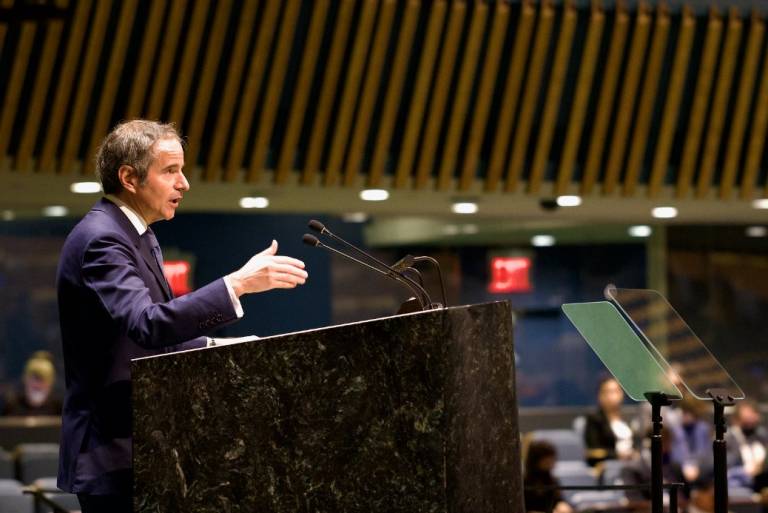Student blog by Jarkko Oksanen*
Social sciences such as International Relations, Criminology and Sociology are increasingly preoccupied with security, contributing to the formation of a “security-minded” pool of generalists who mostly operate on a strategic level. It is nevertheless unclear where these protean experts should be positioned in relation to the more traditional security professions. For instance, the Finnish higher education application portal Studyinfo lists private sector services such as guarding and risk management and the public functions of law enforcement, military career and emergency services as the core security field (Opintopolku 2020). Thus, we should ask why in a country so grounded in voluntary and mandatory forms of security practices – fire services or military conscription for example – seemingly only in recent years have seen the gradual expansion of the security profession into civil, expert careers?
Such a parsimonious classification of the security field obviously stems from Finland’s distinctive history. Despite the society-wide mobilization of resources in the war effort of the late 1930s and mid-1940s, followed by a brief period of societal unrest in the immediate post-war years, Finland has enjoyed a relatively peaceful and stable phase for the rest of the Cold War era and beyond. Even after the turn of the millennium, the worst vagaries of transnational conflict, terrorism and crime seemed to pass Finland by. Yet as Hyvönen and Juntunen have argued (2020, 171–172), the Finnish notion of resilience draws from a tradition of psychological preparedness and resolve. This mindset may have prevented certain policy issues achieving a ‘securitized’ status. Arguably, the mental image of a safe haven has perhaps caused us to ignore the exponential outsourcing of the more imperceptible security functions, such as cash transit security or information security. As argued by Abrahamsen and Williams in 2011, the privatization of security has occurred worldwide and other than military functions often remain obscured in their banality.
Truly, current academic discourse conceptualizes private security entities as private military and/or security companies (PMSCs), whose boundaries of domain remain admittedly nebulous (Prem 2018). For example, the prism of private security services offered by Finnish private security industry leader Securitas is notably large, from home alarms to more special operations such as private investigations and intelligence (Securitas 2020). This versatility in turn not only serves security generalists but experts from engineering or information security as well.
Indeed, we may now find ourselves in a curious moment in time where transnational developments such as increased terrorism on the European soil among others have generated a newfound demand for security aficionados. For example, Finland adopted civil and military intelligence legislation in 2019 along with additional recruitment of analysts and other personnel (Helsingin Sanomat 2020). Simultaneously, new academic programs emphasizing security have emerged in Tampere and Jyväskylä Universities, coalescing around security governance, cyber security and intelligence studies. This, I argue, may be due to societal risk mentality that has increased stealthily, with gross reminders of our vulnerability such as the hacking of the database of privately-run psychotherapy center Vastaamo (YLE 2020)
The overarching take on security present in the aforementioned new study programs seems to adopt the strengths of holistic comprehension of domestic and transnational systems, bridging the gap between more specialist domains and industries for the benefit of public governance and private security enterprise. Similarly, we should also ask whether it is actually the realm of national intelligence and the diffusion of its practices into the civilian sphere that are at the heart of these strategic analysts? Is it so that our modern approaches to security simply demand more intelligence, and the worldwide phenomenon of increased demand of intelligence is now merely manifesting in Finland?
In any event, deducing from current trajectories in transnational security considerations and the remarks above, it seems that something quite interesting is taking place within the Finnish security field. This text serves as an invitation to discuss about the topic, perhaps even to enhance a more self-aware security community that already benefits from its small size and shared intellectual capital. This community in turn should reflect on the meaning of home and the provision of security set to safeguard it, and which issues it is able to address without resorting to counterproductive fearmongering.
*This student blog post has been done as part of the course SAFS01 Societal Security: Contemporary Challenges in the Masters Degree Programme in Security and Safety Management (SAFER) in fall 2020.
References
Abrahamsen, Rita & Williams, Michael C. (2011): Security beyond the state: private security in international politics. Cambridge: Cambridge University Press.
Helsingin Sanomat (2020): ”Aki, Henri ja Jorma etsivät töihin vakoojia ja nörttejä – Suomen tiedustelupalvelu joutuu rakentamaan ulkomaanvakoilun tyhjästä”, 1.2.2020. Available: https://www.hs.fi/politiikka/art-2000006391958.html, accessed December 22nd 2020.
Hyvönen, Ari-Elmeri & Juntunen, Tapio (2020): “From “spiritual defence” to robust resilience in the Finnish comprehensive security model” in Larsson, Sebastian & Rhinard, Mark (eds.) Nordic Societal Security: Convergence and Divergence. London: Routledge, 154–178.
Opintopolku.fi (2020): “Turvallisuusala: Sosiaalinen ja vastuullinen”. Available: https://opintopolku.fi/wp/story/turvallisuusala/, accessed November 19th 2020.
Prem, Berenike (2018): Who Am I? The Blurring of the Private Military and Security Company (PMSC) Category in Bures, Carrapico (ed.). Security Privatization: How Non-Security-Related Private Businesses Shape Security Governance. Cham: Springer International Publishing AG.
Securitas (2020): “Turvallisuuspalvelut”. Available: https://www.securitas.fi/turvallisuuspalvelut/, accessed November 20th 2020.
YLE (2020): “Psychotherapy centre’s database hacked, patient info held ransom”, yle.fi, 21.10.2020. Available: https://yle.fi/uutiset/osasto/news/psychotherapy_centres_database_hacked_patient_info_held_ransom/11605460, accessed December 22th 2020.





